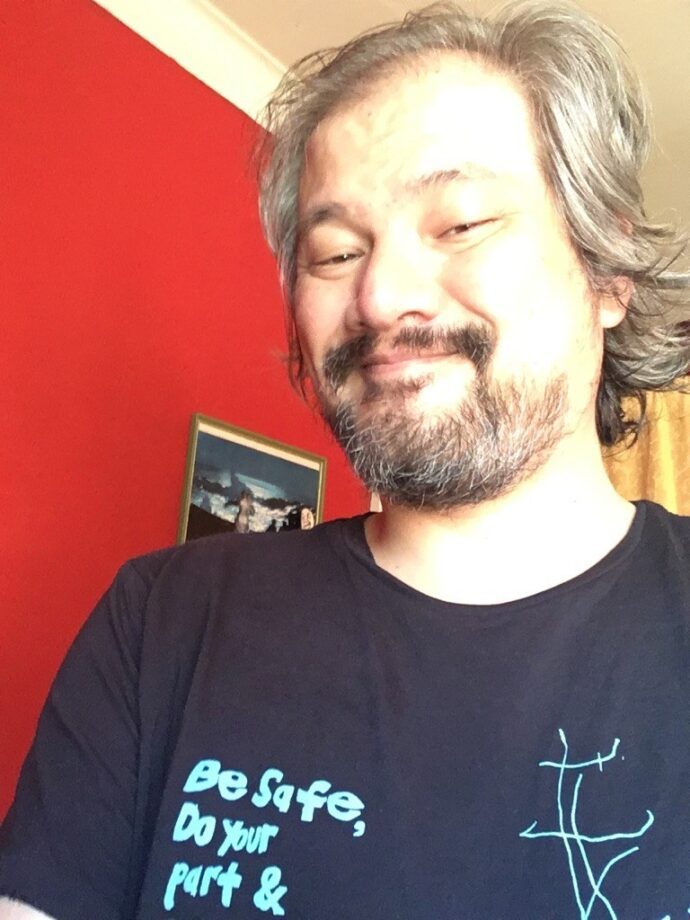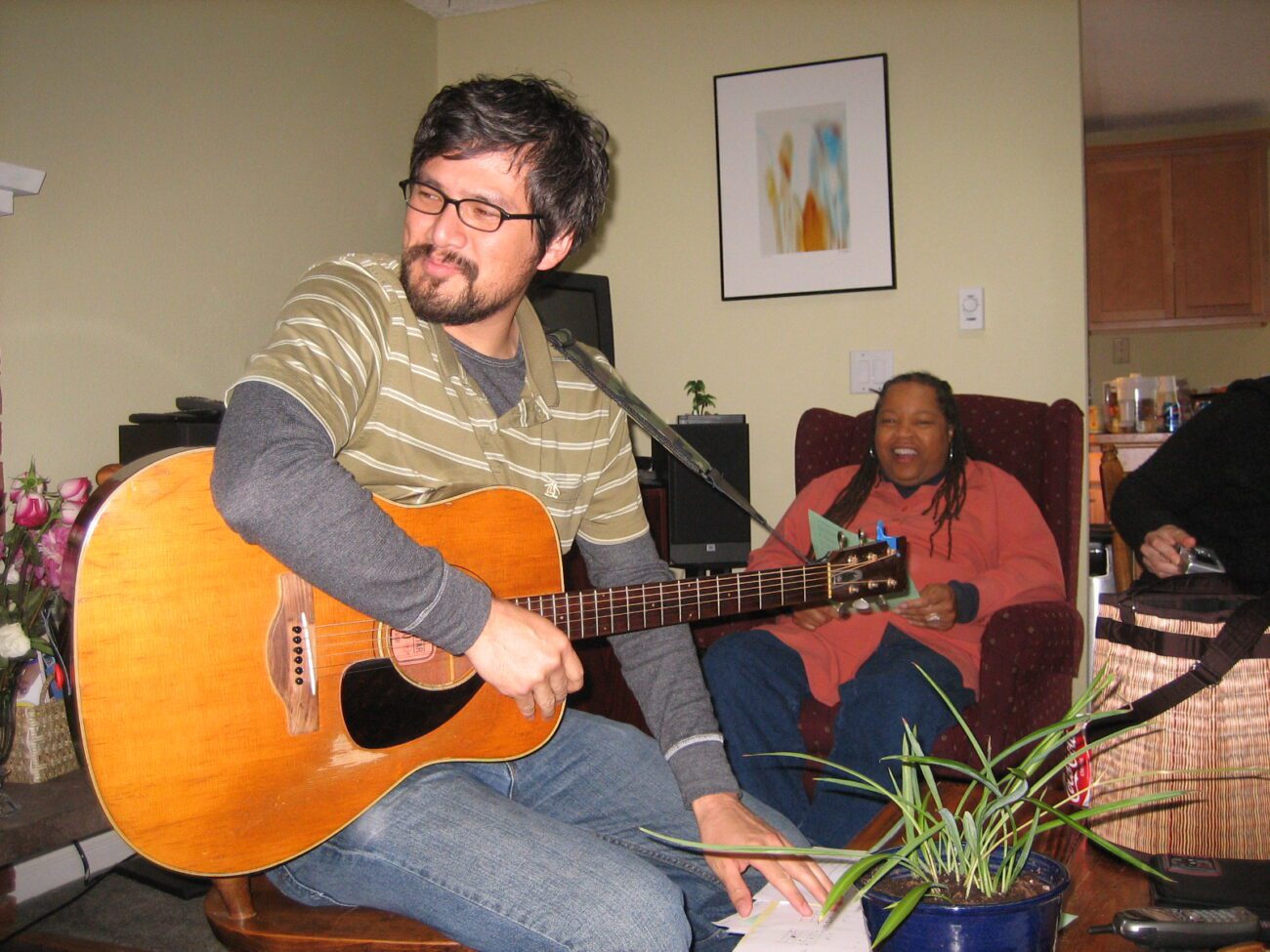
What is your role at Seattle Human Services?
In my current role, I support the Youth and Family Empowerment (YFE) Division Director and the YFE leadership team. And, like many other administrative specialists, I wear a variety of different hats in supporting my team and division. This support touches on, but is not limited to, facility management and safety, a little bit of HR, IT/phone coordination and technical assistance, and purchasing. I also liaise with other internal and external admin/executive assistants/partners within the city and anyone else that happens to interface with my director.
What made you want to work in human services?
I had never considered human services as a field of work previously, but I can share a couple of job experiences that helped inform my feelings and attitudes toward working in human services and being of service to others.
Firstly, when I moved to Seattle in 1997, I found employment at Harborview Medical Center as a Diet Unit Clerk (DUC). As a DUC, I was responsible for delivering meals to patients throughout the day, helping them fill out their menus, and ensuring they received the correct meal/prescribed diet and worked alongside a team of other DUCs, kitchen staff, dieticians, and nursing staff. My assigned patient floors were the hospital’s burn intensive care unit and rehab unit, pediatric rehab unit, and occasionally the psychiatric unit. Being in this position put me in contact with patients in varying states of physical and emotional distress, pain, anger, frustration, sadness, or grief depending on their medical circumstances. But I also experienced instances of optimism, relief, humor, happiness, and resiliency. The job challenged me in the ways of being empathetic, engaged, listening actively, and supporting others.
Secondly, in 2001 I found work at Asian Counseling and Referral Service (ACRS), as an administrative specialist. This community-based organization exposed me to working alongside Asian and Asian Pacific Islander (AAPI) staff and supporting the AAPI community. At this point in my life, I didn’t have a strong Asian identity or sense of Asian pride. Growing up mixed race, half-Asian and Caucasian, in primarily non-Asian communities during the 1970s and 80s, negatively affected my identity as an AAPI individual. In hindsight, there was a lot of internalized racial oppression that I carried with me. However, in this space, I found support and encouragement from my colleagues to embrace my identity while being of service to those from ethnically diverse, low-income, low-opportunity, and disenfranchised backgrounds.
My experiences at ACRS and at the hospital are what ultimately led to me to HSD in 2006, where I was hired as an administrative specialist in the Contracts unit in the Youth Development and Achievement Division. HSD’s mission and vision were ones that I could identify with and hopefully be able to apply my skills and experience in support of.
How has your job changed in recent years?
Not too much has changed over the years with my primary role, however, the shift to the hybrid work environment over the last 2-3 years did create unique challenges in regard to supporting and accessing folks and teams.
Ultimately, like everyone else, I’ve adapted to this norm and embraced the tools available to get the work done. Yet, the expectations and demand on time always seem to be at a premium. It will be interesting to see where the city moves to in relation to our business and workplace norms in the next 2-3 years. Hopefully, it will be a creative and positive one that is supportive of both our programs and staff’s work-life balance.
What do you love about your job?
I think what I value most about my work are the relationships I have fostered and maintained throughout my time here at HSD. I rely on these relationships to help me get the day-to-day work done. Without strong collaborative and respectful relationships, I can’t imagine how I would be successful in this work. And fortunately, I work with many smart, creative, and mindful folks here at HSD.
How do you contribute to HSD’s overarching goals related to racial equity?
In my daily work, I try to center the City’s racial equity goals. This can take form in a variety of different ways, such as sharing race and social justice resources with colleagues, promoting the department’s Change Team and Person of Color (POC) caucuses to staff, and sitting on hiring panels and explicitly prioritizing candidates who have strong racial equity experience and background. Moreover, I try to participate in the Asian Pacific Islander (API) Caucus when I have time to do so and try to be a supportive ally to our other caucus partners.
What motivates you or keeps you going?
Again, I draw more motivation from my personal relationships at HSD. Having a random conversation with a colleague can change my outlook on the day in a positive way! Outside of work, I participate in activities such as playing music and ice hockey to keep me grounded and refreshed. Without these activities in my life, I would be a crank.
What’s one piece of advice for HSD newcomers or recent graduates in your field?
For those pursuing a career or opportunities in human services, I would share with you that HSD is one of the few city departments that resembles – to my mind – a community-based organization. The department in its a role as a funder and service provider centers itself in people in both its employees and the community that it serves and supports.
For new administrative specialists at the City, I would encourage you to make connections with your peers across the department. Furthermore, I would encourage folks to tap into employee resources such as Cornerstone for training opportunities and join the city’s Digital Workplace Champions group, which meets regularly to support the city’s current software/tools. It always helps to keep up to-date and in the know!


